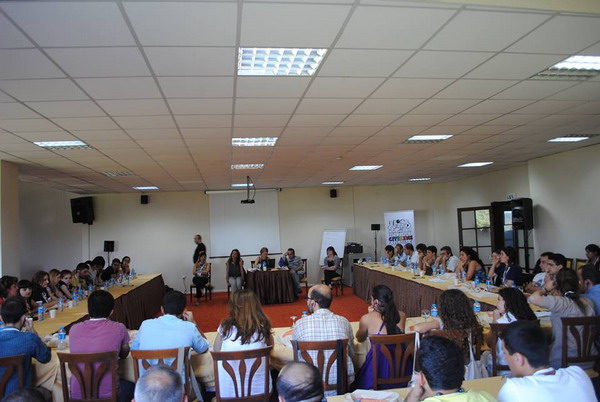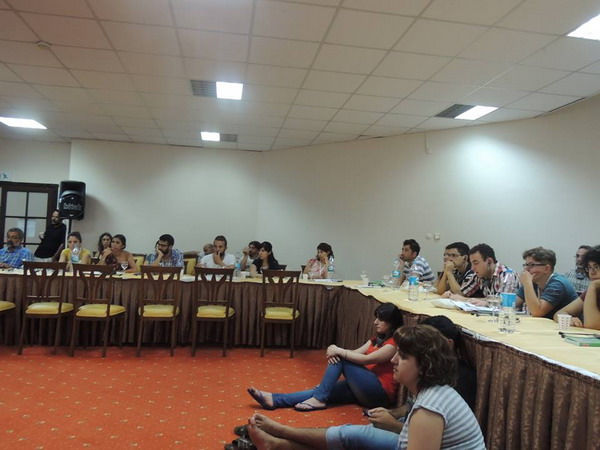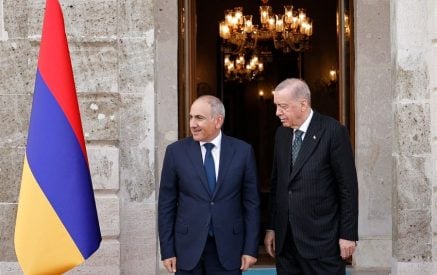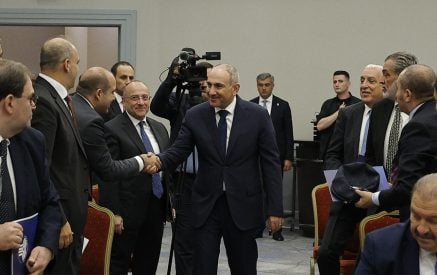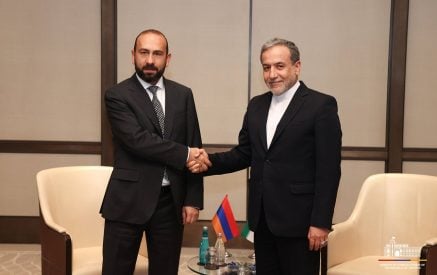A big group of teachers working in schools of Armenia and Turkey was participating in the meeting organized jointly by HCA Turkish Committee and HCA Vanadzor office. The goal of the meeting was to discuss the Armenian genocide issue occurred in Turkey, to recognizing each other and to find outcomes and contacts on reaching the true information on Armenian’s genocide to Turkish schoolchildren, under the program “Little by Little-yavaş yavaş”. Schoolteachers working in big and small towns and villages of the country represented the Turkish side. Many of them had not only vague, but generally no idea about the genocide of 1915. Those who were aware of the history, only after Hrant Dink’s murder, which had become an incentive for them to seek information and to get more details. The 6-day program includes Turkish and Armenian figures’ famous in Turkey and the world lectures about the Armenian genocide: Murat Belge, Ümit Kurt, Zakaria Mildanoghlu, Edward Tandzikyan and others, which were held simultaneously with the discussions.
The fact of the Armenian Genocide denial in the context of human rights and democracy in Turkey as the main obstacle of building bridges of friendship between the two nations, according to all lecturers, is possible to eliminate in two main dimensions: through dissemination of historical truth among Turkish citizens and establishment of a public opinion, as well as by influencing on the brutal and denial policy course assumed by the government. To inform that on listening to their compatriots’ (including Armenian) lectures and opinions, many of Turkish teachers had a feeling of shock. The fact of confronting their colleagues, communicating with them and listening to their opinions generated an emotional atmosphere.
After the lecture entitled “Traces of Armenians in Turkey” by Zakarya Mildanoghlu, Turkish participants were excited and this excitement went on by chain. A young Turkish language teacher from one of the Bursa secondary schools, Sezer Demir, could not hold back his excitement during the discussions. “What I want to say, I do not know to what extent it relates to the specific topics of lectures raised here, anyway, I would like to be expressed. A horrible history divides us from one another and a closed border because of this history, but we have lived in the same house with Armenians, this is our common home and horrible photos are hanging on the walls of this house, there is a corpse in that house. How is it possible to live in this house? How is it possible to clean this house and make it light? How is it possible to carry the heavy burden that is passed on us by our ancestors,” the excitement chocked him and the young man left the room.
Read also
During the conversation with us, he said that he has had information about the Armenian massacres prior to this meeting, too, because in Turkey, in addition to the state information mentioned and one-sided records mentioned in the history textbooks, people speak in whisper. Sezer confessed that he became seriously interested in the Armenian question after the murder of Hrant Dink, and already independently he had tried to look for historical information and documentary, but this is his first confrontation with Armenians under this format and this experience is very difficult for him, on the other hand, and on the other hand, of course, important, not only to obtain additional information, but in terms of feeling the matter. To our question of whether he will be able to apply the knowledge and experience obtained in this summer school at his workplace, Sezer responded, “Within the circle of my educational topics, no, because I am teaching Turkish language, while in my surroundings, I will certainly speak about the genocide. I hope that on the says of the 100th anniversary of the Genocide, the topic will be quite active in Turkey and my students will be interested in it. At the time, I will be able to convey my information and opinion to them.”
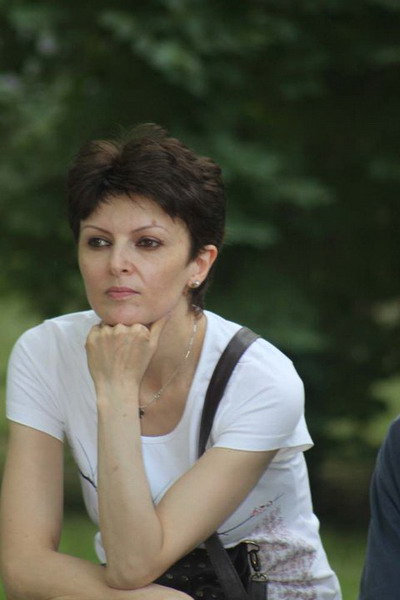
Gayane Arustamyan
The teachers of the Turkish language attending the aforesaid meeting held for regulating the Armenian-Turkish relations (by the way, by saying a teacher of the Turkish language I mean citizens of Turkey, because there were representatives of Kurdish, Laz, Arabs, Armenians and other minorities among them, although the major part of the participants were ethnic Turks) were apologizing to us for being in emotional and uncomfortable condition, and their excitement was passing to us, as in human contact dimension, it becomes apparent that the main cause for interruption of human relations were the barriers built under the pressure of the state propaganda. “I do not know what to do now, what to think, and how to wear this heavy burden. Since our childhood, we have always been told that Armenians are bad, that they have killed us, that they hate us, and we grew up with this heavy burden on our backs. I feel myself very bad, I have a sense of shame, and I want to scream apologize. But this is not the worst thing, I need to return to my village, where the community with negative or at the best, indifferent sentiment to Armenians through the state propaganda lives. How am I going to enter the school and tell the truth to my schoolchildren…? In addition to psychological matters, there is also another problem, we teach at a strongly state-approved curriculum,” shared his concern I shared the concerns Ismail Kirmizi, who had come from one of remote villages in Turkey, who was a Sunni Muslim and was raised in a strict family.
But regardless of the complex psychological and legal issues facing them, our Turkish colleagues unanimously pointed out that they give much importance to the meeting and are happy this ice is slowly melting, and tendency for reconciliation with Armenians and perhaps, friendship is observed.
Gayane ARUSTAMYAN




















































